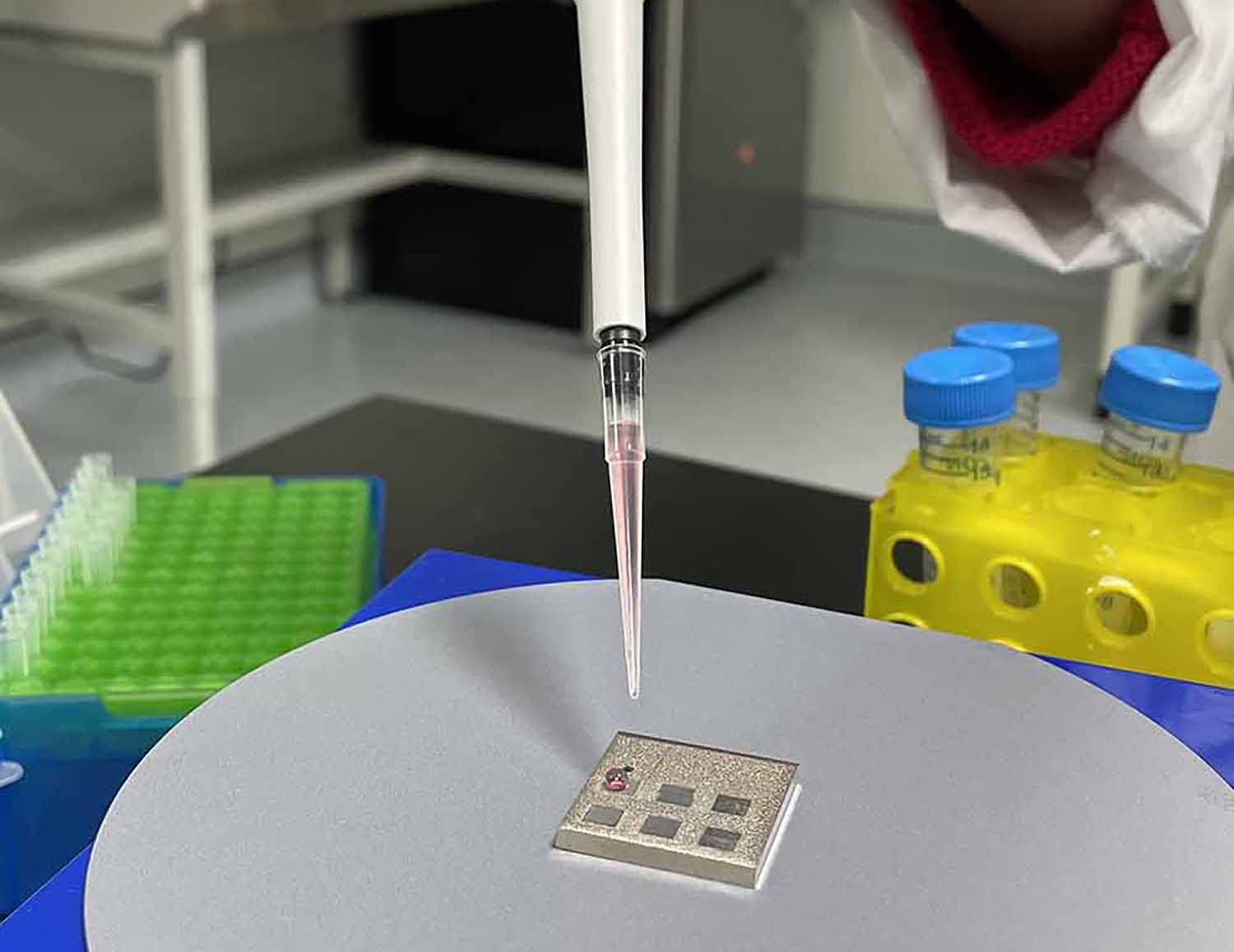As little as five microlitres of blood could be used to detect tumour content in cancer patients with incredibly high accuracy, say TMU and Unity Health Toronto researchers.
TMU professors Bo Tan (Aerospace Engineering) and Krishnan Venkatakrishnan (Mechanical Engineering), along with postdoctoral fellows Rupa Haldavnekar and Swarna Ganesh have been working with Dr. Sunit Das, a neurosurgeon and scientist from St. Michael’s Hospital, a site of Unity Health Toronto, using a highly sensitive nanosensor to test blood samples.
The nanosensor, a small device that measures physical quantities and turns them into signals, can detect cancer biomarkers in blood. This practice is referred to as a liquid biopsy and can effectively detect cancer in patients before the more conventional practices of imagery (MRIs) or traditional tissue biopsies.
“The way we monitor cancer patients is to have an MRI every three months,” said Dr. Das. “No one has a system that would allow us to do MRIs every week, but conceivably, we could do a blood test every week. This could be a surveillance tool that alerts oncologists about changes in their patient’s cancer.”
The group has tested hundreds of blood samples for the past two years. Most recently they were able to use the nanosensor to detect brain cancer content in blood, which until now, was incredibly difficult to do due to the limited amount of blood in the brain.
Tumours were detected with 100 per cent accuracy and tumour location was detected with 97 per cent accuracy, making the liquid biopsy a reliable source for deep surveillance of brain cancer — something that currently doesn’t exist.
“Right now, most cancers are diagnosed at stages two, three, four,” said Tan. “If the blood test can detect tumour content, we can catch them at a very early stage, before the patient shows symptoms.”
They are currently testing blood samples for tumour content accuracy with common cancers like breast, lung and colon. Das says that this could be more than a cancer diagnostic tool, too. The nanosensor has the potential to find brain injury or multiple sclerosis biomarkers in blood.





